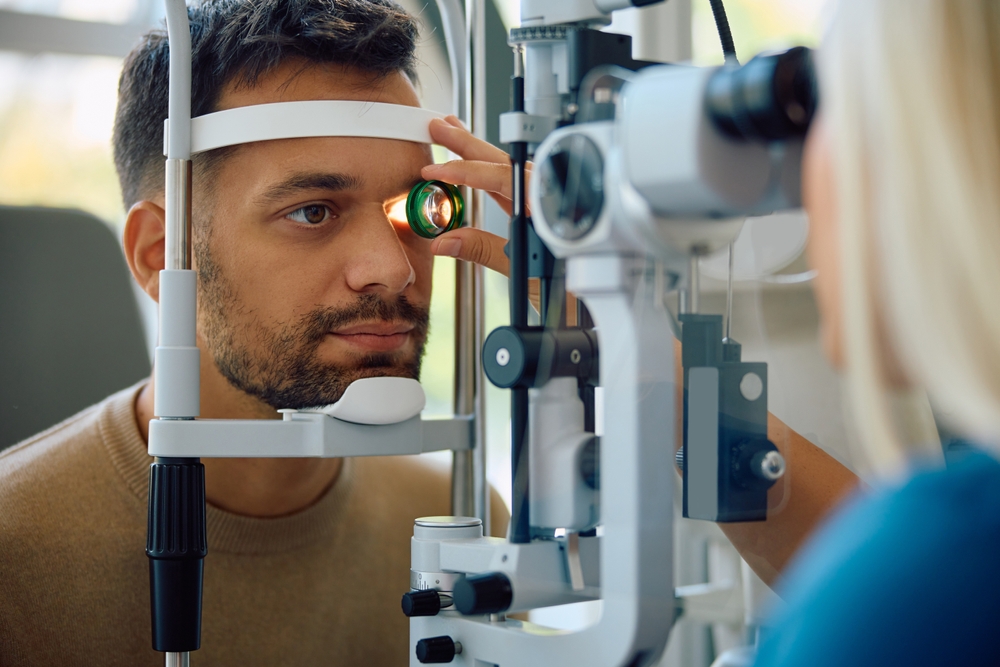
Maintaining the health of your eyes is crucial for ensuring long-term vision and overall well-being. Often, the significance of routine eye exams is underestimated, as many people believe they only need to visit an optometrist when they experience vision problems. However, eye exams are vital for more than just correcting vision; they are a preventive measure for maintaining your ocular health.
What to Expect During Your First Eye Exam?
Before the exam, you will likely be asked to fill out forms about your health history, including any current eye problems, medications, and any glasses or contact lenses you currently use. This information helps the eye doctor understand any symptoms you're experiencing and what to look for during the examination.
The actual exam will start with tests to measure how clearly you see (visual acuity) and may involve reading an eye chart. Your optometrist will also check for nearsightedness, farsightedness, astigmatism, and presbyopia. Then, they'll test how well your eyes work together and assess your eye movement, which is important for tracking and depth perception.
You'll also undergo tests to check your peripheral vision and the health of your eyes' interior. This might include pupil dilation to allow a better view of the inside of your eyes. While dilation is common and safe, it may leave your eyes sensitive to light for a few hours after the exam, so plan accordingly.
Once the examination is complete, your eye doctor will discuss the findings with you. If there are any issues, they will explain your options for treatment or correction. This could include prescribing glasses or contact lenses, suggesting surgery, or scheduling another appointment for further testing.
Eye Diseases that Can be Detected Through Routine Exams
Conditions such as glaucoma, macular degeneration, cataracts, and diabetic retinopathy can all be identified during a comprehensive eye exam.
Glaucoma, for example, is often called the "silent thief of sight" because it typically shows no symptoms until significant vision loss has occurred. However, during a routine eye exam, the eye doctor can measure the pressure inside your eye and inspect the optic nerve for signs of glaucoma before you're even aware of a problem.
Similarly, signs of macular degeneration can be detected through a close examination of the retina, allowing for early intervention. Routine eye exams can also reveal changes in the lens of your eye that may indicate cataracts, even before they start affecting your vision.
The Importance of Early Detection and Treatment of Eye Diseases
Detecting eye diseases early is crucial because many eye conditions progress slowly and silently, without obvious symptoms. By the time you notice a change in your vision, the disease might have already caused irreversible damage. Early detection through routine eye exams allows for a range of treatment options that can slow down or even halt the progression of eye diseases.
Early treatment is often less invasive and more effective. For example, in the case of glaucoma, management might be as simple as prescription eye drops to lower intraocular pressure. Early detection of diabetic retinopathy allows for better management of diabetes and protective treatments for the eyes.
Early treatment can be more cost-effective in the long run, reducing the need for more complex procedures and surgeries. This proactive approach to eye care ensures that you maintain the best possible vision throughout your life.
Ensuring Clear and Healthy Vision through Regular Eye Exams
Don't wait for symptoms to appear before scheduling an eye exam. Instead, make it a part of your regular healthcare routine. Early detection and treatment are key to preserving your sight and ensuring that you continue to experience the world to the fullest.
Take the step today to book your comprehensive eye exam and establish the foundation for a lifetime of healthy vision, visit Motiveyes Eye Care at our office in Plano, Texas. We are committed to providing quality eye care services and products for the entire family. Please call (469) 656-8361 to schedule an appointment today.















